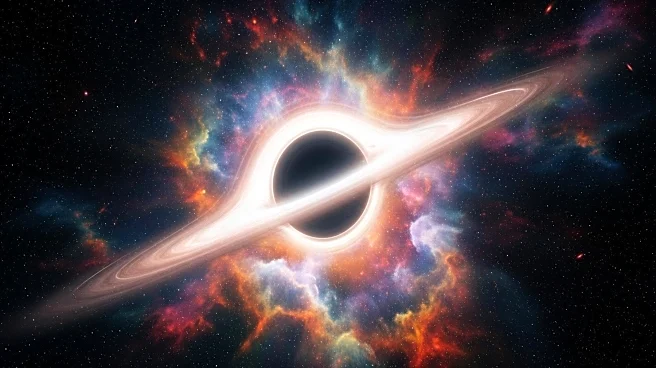What is the story about?
What's Happening?
Physicists at the University of Massachusetts Amherst have published research suggesting a high probability of observing an exploding primordial black hole within the next decade. These black holes, theorized to have formed shortly after the Big Bang, could provide a definitive catalog of subatomic particles, including hypothesized dark matter particles. The study, published in Physical Review Letters, posits that these explosions could be detected by current telescopes through Hawking radiation, a theoretical emission from black holes. The research challenges previous assumptions about the rarity of such events, suggesting they could occur once every 10 years rather than every 100,000 years.
Why It's Important?
The potential observation of an exploding primordial black hole would be groundbreaking, offering direct evidence of Hawking radiation and a comprehensive record of particles that constitute the universe. This could revolutionize physics by providing insights into the origins of matter and the universe itself. The findings could also advance our understanding of dark matter, a mysterious component of the universe's mass. If confirmed, these observations would validate long-standing theoretical predictions and open new avenues for research in cosmology and particle physics.
What's Next?
The research team suggests preparing current telescopes to detect Hawking radiation from these black holes. If successful, this would mark the first direct observation of such phenomena, potentially occurring within the next decade. The study encourages physicists to reconsider assumptions about black hole charges and their stability, which could lead to further theoretical developments. Continued advancements in telescope technology and observational techniques will be crucial in capturing these rare cosmic events.















